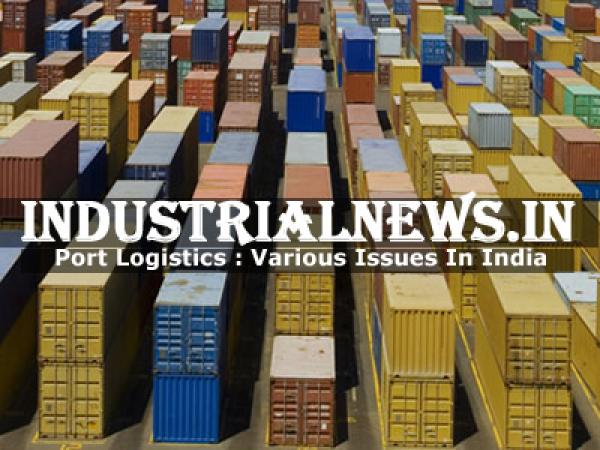Port Logistics: Issues & Challenges in India
12/02/2018 23:07:00

Dun & Bradstreet releases ‘Port Logistics: Issues & Challenges in India’
- The study looks into various roadblocks and suggests policy recommendations to resolve the challenges across ports in India. It was handed over to Suresh Prabhu, Minister of Commerce & Industry today.
- To achieve a target of 5% share in world exports, India’s exports need to grow at an average rate of over 26% for the next five years. This would require increasing its product competitiveness. Enhancing product competitiveness in the global market needs infrastructure for trade to improve, and ports are a critical part of trade infrastructure.
- The study encapsulates key issues and challenges and also proposes 60 policy measures to strengthen the ports sector, which represents the bulk of India’s merchandise trade .The study introduces a ‘Port Performance Index’ as an attempt to benchmark performance of various ports by combining qualitative perception of stakeholders with quantitative outcome based data.
- Covering 13 ports which handle around 67% of India’s maritime trade, and engaging with 700 respondents pan India, comprising government officials, trade associations, exporter/importers, cargo handling agents and freight forwarders. Feedback was collected from these stakeholders on both qualitative and quantitative aspects of business transactions at ports.
The scope of this study is limited only to container and bulk cargo handled at these ports and does not cover liquid cargo.
- Looking at 13 major ports, 3 ports (JNPT, Kamarajar, Vizag) have received ‘Good’ score; 7 ports (Cochin, Kandla, Paradip, Chennai, Mormugao, New Mangalore and VOC) have received ‘Average’ score and & 3 ports (Haldia, Kolkata and MbPT) have received ‘Poor’ score.
- Five issues, namely port congestion, customs clearance (including scanning & ICEGATE), shipping line issues & charges, documentation & paperwork, and regulatory clearance are the most common problems across ports and out of these just 4 issues, constitute 80% of total issues causing detention & demurrage.
- The three major findings of the report are - Processes and operations across the ports are not standardized or uniform; Costs and time for key processes are unpredictable and there is an unacceptable level of variation across ports as well as within port; Several government initiatives taken need to be followed through to completion.






